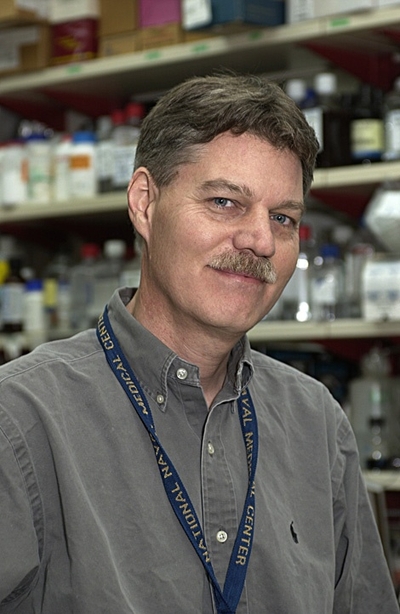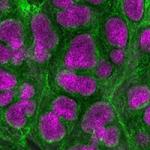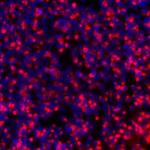
Paul E. Love, M.D.,Ph.D.
Senior Investigator
Section on Hematopoiesis and Lymphocyte Biology
NICHD/DIR
Research Topics
Exploring genes and signals regulating mammalian hematopoiesis and new approaches to immunotherapy
Our research focuses on the development of the mammalian hematopoietic system. Of particular interest is the characterization of signal transduction molecules and pathways that regulate T cell maturation in the thymus. Current projects include the analysis of transgenic and conditional deletion mutants of the T cell antigen receptor (TCR) signaling subunits at specific stages of T cell development. We are also using gene profiling as well as RNA-seq and ChIP-seq to identify and characterize molecules that are important for thymocyte selection, a process that promotes the survival and development of functional T cells and the death of auto-reactive T cells that could cause autoimmune disease. These include Themis, Fbxl12, CD5 and CD6. Recently, we have begun to investigate the translational potential of our findings by determining if they can be used to augment T cell based cancer immunotherapy or to treat autoimmune diseases in humans. These studies are being performed in collaboration with laboratories and investigators in NCI. Another area of investigation focuses on hematopoietic stem cells (HSCs). We have begun to characterize the genes that are important for the generation and maintenance of HSCs and for their differentiation into specific hematopoietic lineages, particularly T cells. These studies have revealed a critical function for one protein (Ldb1) in controlling the self-renewal/differentiation cell-fate decision in hematopoietic stem cells and in the genesis of certain types of T cell acute lymphoblastic leukemia (T-ALL) in children.
Biography
Dr. Paul Love earned a B.S. degree in Biochemistry from Syracuse University and an M.D. and Ph.D. in the MSTP program at the University of Rochester. He completed a residency program in Laboratory Medicine at Washington University, St. Louis and a fellowship in Human Genetics in NICHD before conducting post-doctoral research in NICHD. He became an intramural Principal Investigator in 1993 and is currently a tenured Senior Investigator and head of the Section on Hematopoiesis and Lymphocyte Biology in NICHD.
The research focus of Dr. Love’s lab is in the area of mammalian hematopoiesis. The lab has a long history of studying the process of T cell development, which begins with migration of multipotent progenitor cells, derived from hematopoietic stem cells in the bone marrow, to the thymus. Immature T cells then undergo a series of developmental steps in the thymus, including a process of selection that promotes the development of functional cells and the deletion of overtly self-reactive cells, ultimately leading to the generation of mature “self-tolerant” T lymphocytes that exit the thymus and populate the peripheral lymphoid organs. Dr. Love’s group has investigated questions relating to each of these steps in the T cell developmental pathway over the years; however, the main focus of his lab is the role and importance of signals transduced by the T cell antigen receptor (TCR) for T cell maturation. Current work includes studies aimed at understanding how TCR signaling influences susceptibility to autoimmune disease, how TCR signaling might be modified to assist in tumor immunotherapy, and investigating potential therapeutic interventions for the treatment of T cell malignancies.
Selected Publications
- Choi S, Warzecha C, Zvezdova E, Lee J, Argenty J, Lesourne R, Aravind L, Love PE. THEMIS enhances TCR signaling and enables positive selection by selective inhibition of the phosphatase SHP-1. Nat Immunol. 2017;18(4):433-441.
- Gaud G, Lesourne R, Love PE. Regulatory mechanisms in T cell receptor signalling. Nat Rev Immunol. 2018;18(8):485-497.
- Zhao B, Yoganathan K, Li L, Lee JY, Zúñiga-Pflücker JC, Love PE. Notch and the pre-TCR coordinate thymocyte proliferation by induction of the SCF subunits Fbxl1 and Fbxl12. Nat Immunol. 2019;20(10):1381-1392.
- Li L, Mitra A, Cui K, Zhao B, Choi S, Lee JY, Stamos DB, El-Khoury D, Warzecha C, Pfeifer K, Hardwick J, Zhao K, Venters B, Davé UP, Love PE. Ldb1 is required for Lmo2 oncogene-induced thymocyte self-renewal and T-cell acute lymphoblastic leukemia. Blood. 2020;135(25):2252-2265.
- Gaud G, Achar S, Bourassa FXP, Davies J, Hatzihristidis T, Choi S, Kondo T, Gossa S, Lee J, Juneau P, Taylor N, Hinrichs CS, McGavern DB, François P, Altan-Bonnet G, Love PE. CD3ζ ITAMs enable ligand discrimination and antagonism by inhibiting TCR signaling in response to low-affinity peptides. Nat Immunol. 2023;24(12):2121-2134.
Related Scientific Focus Areas
This page was last updated on Tuesday, January 13, 2026




